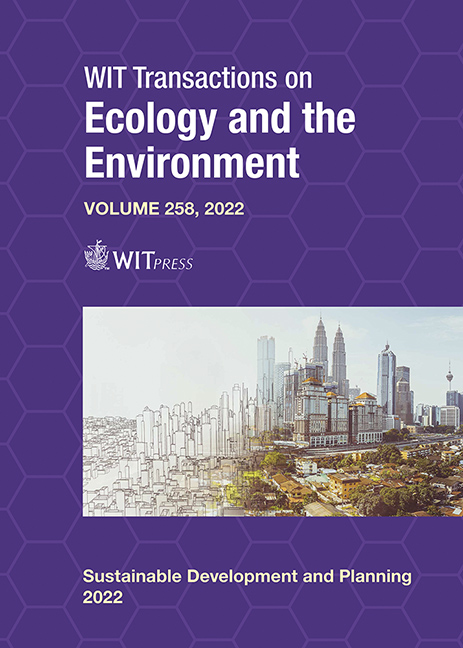ADAPTIVE PLACES: ACHIEVING RESILIENCE BY FACING RISKS
Price
Free (open access)
Transaction
Volume
258
Pages
11
Page Range
285 - 295
Published
2022
Paper DOI
10.2495/SDP220241
Copyright
Author(s)
MARICHELA SEPE
Abstract
Multiple kinds of crisis increasingly occur simultaneously, making it difficult to resolve challenging urban conditions as different risks are overlapped and involve social, economic, environmental, health and liveable topics. Furthermore, each place is different and has its peculiarities with respect to material and immaterial characteristics and, for this reason, faces crisis at different times and modalities. In line with this concept, risks are also different among and, for example resilience to environmental risk is different from resilience to an economic one. To achieve a sustainable adaptation and regeneration of the places affected by multiple risks it is important to study the questions using many points of view and using suitable urban methods. Starting from these premises, the aims of this study, carried out in the framework of the “PRIN2020 20209F3A37” research project, within the ISMed-CNR Unit with the author’s responsibility, include the following. First, to define and identify what the types of risk are and the main types of overlapping of them in sites. The identification of risks requires an accurate analysis of places, while the possible overlapping could require a certain degree of uncertainty, with it being difficult beforehand to know the periods in which the different crises will occur. Second, to identify what are the main places which are – or could be – subjected to multiples risks. Main places include: historic places in poor state of maintenance; historic places with mass tourism; public spaces; places interested by earthquake or other environmental disasters; and places characterized by isolation for many reasons. Third, to propose an original and ad hoc method to comprehend what the better and sustainable solutions are in terms of adaptation and regeneration of different kinds of places affected by multiple crisis. The observation concerning the method in relation to the mentioned topics will also be covered in the paper.
Keywords
adaptation, resilience, multiple risks, sustainability, urban regeneration





